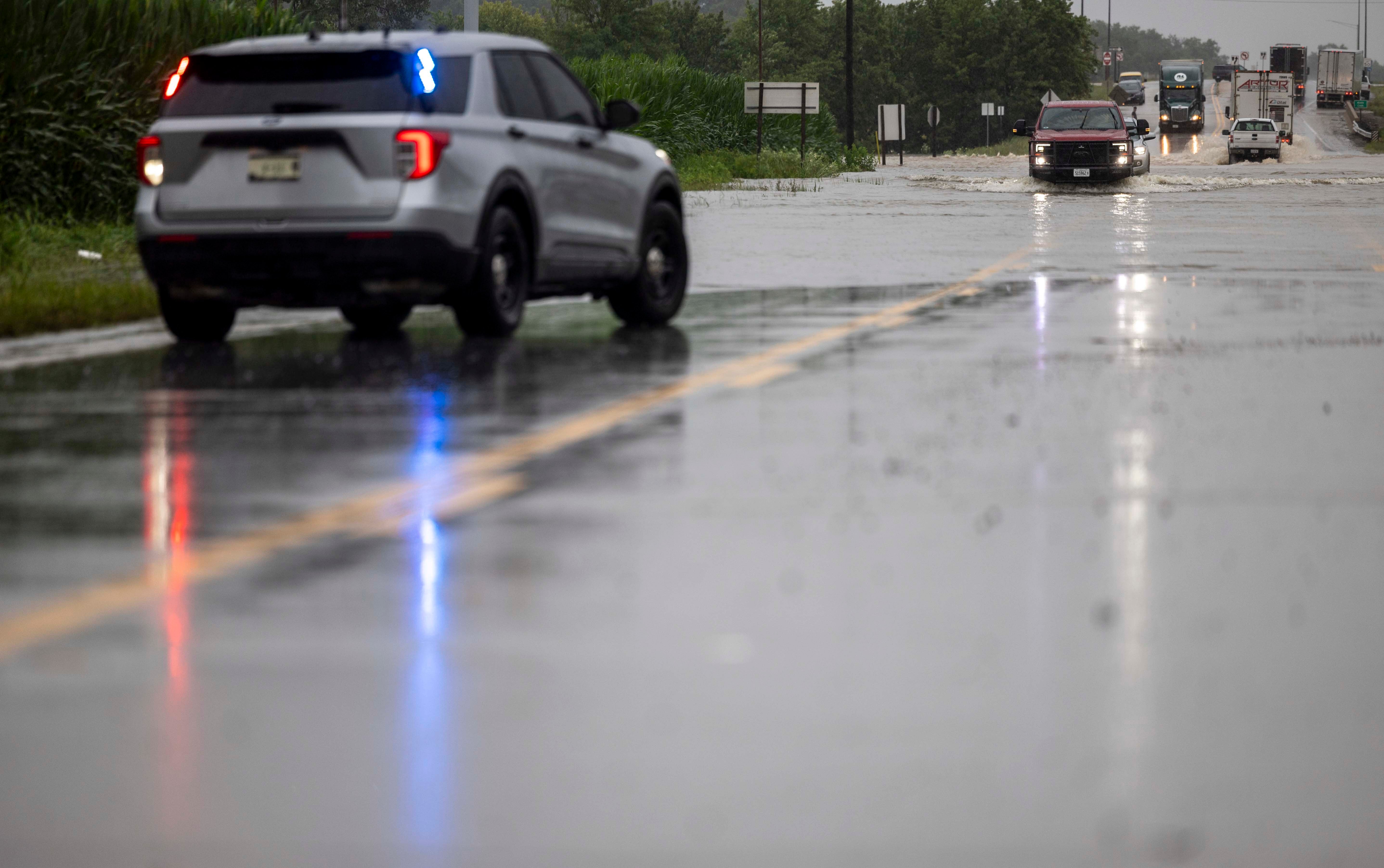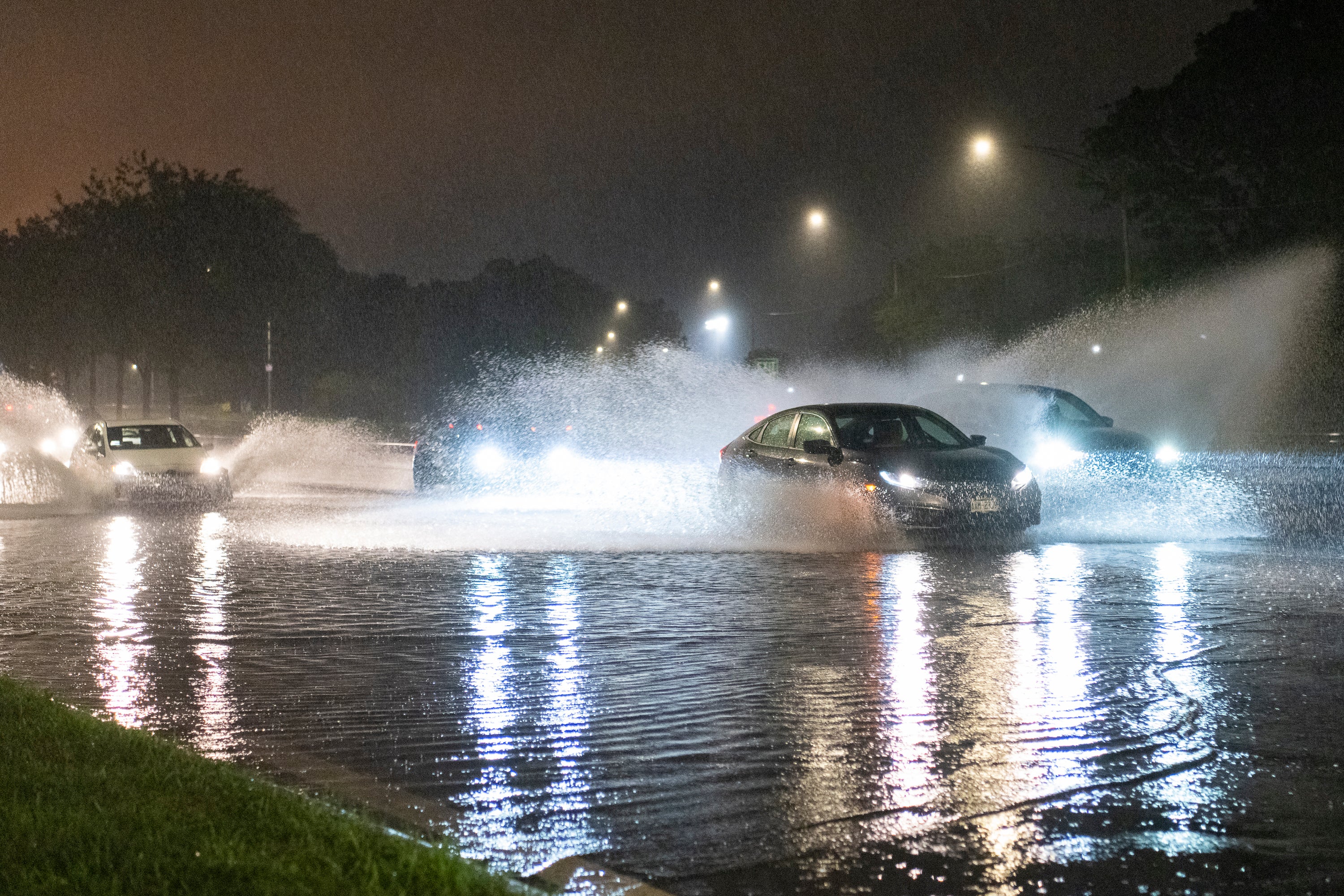Dam failure in Illinois is imminent as residents warned ‘evacuate now’
A secondary dam was also overtaken by flood waters
Your support helps us to tell the story
From reproductive rights to climate change to Big Tech, The Independent is on the ground when the story is developing. Whether it's investigating the financials of Elon Musk's pro-Trump PAC or producing our latest documentary, 'The A Word', which shines a light on the American women fighting for reproductive rights, we know how important it is to parse out the facts from the messaging.
At such a critical moment in US history, we need reporters on the ground. Your donation allows us to keep sending journalists to speak to both sides of the story.
The Independent is trusted by Americans across the entire political spectrum. And unlike many other quality news outlets, we choose not to lock Americans out of our reporting and analysis with paywalls. We believe quality journalism should be available to everyone, paid for by those who can afford it.
Your support makes all the difference.The dam at the Nashville City Reservoir in Nashville, Illinois, is in "imminent" danger of failure, according to the Washington County Emergency Management Agency. Residents have been warned to “evacuate now.”
City officials published a map showing which areas were most likely to be affected once the dam breaks, and has asked all within that area to move to safety, WHO13 reports.
“The Failure of the Nashville dam is imminent. Please evacuate your home at this time. If you are in the grey box, you need [to] evacuate now!” the agency said on Tuesday morning.
According to Darrah Sabo, deputy director of the WCEMA, some 3,000 people live in the evacuation zone.
A secondary dam has also been overtaken by flood water, according to the agency.

“Washington County is experiencing an emergency flood situation,” the agency said in a Facebook post. “Stay at home unless evacuations are needed. Do NOT attempt travel. Many roads are underwater with another 2-4 inches of rain possible. Crossing flooded areas may result in permanent injury or death.”
On Tuesday morning, the National Weather Service announced that Washington and Clinton County were upgraded from a flash flood warning to a considerable flash flood advisory.
According to the NWS, the upgrade means that flash flooding will occur and is likely to be more dangerous than typical flash floods.
The WCEMA wrote on its social media page said a shelter for residents had been established on West Walnut Street.
“The Red Cross has been activated,” the post said.
Jayette Bolinski, spokeswoman for the Illinois Department of Natural Resources said that local officials are following their emergency action plans for the dam. She said the dam was built to allow water to overrun it’s rims and follow an emergency path to prevent massive flooding.

“This dam was deliberately built so that when water rises it activates an emergency ‘fuse plug’ spillway and follows an emergency path,” she told the Belleville News-Democrat.
She noted that water also overran the dam during flooding in July 2022.
On Tuesday evening, evacuated residents were told by the WCEMA that they could return to their homes.
Footage from Nashville showed flood waters completely covering city streets and, in some cases, reaching as high as the rear-view mirrors on resident’s cars.
By the time residents returned to their homes, there had been no reports of injuries or deaths caused by the flooding, according to the WCEMA.
Between 5 to 7 inches of rain fell in the region early on Tuesday morning, which caused the flooding, according to the NWS. More heavy rain is yet to come according to the agency’s forecasts.
No injuries from the flooding or dam failures have been reported at this time, but the agency said one individual who was trapped in their home by the flooding required a water rescue, USA TODAY reports.
The Human-driven climate crisis, caused by the burning of fossil fuels, will likely make flood events like the one occuring in Illinois more common, according to Loren Wobig, the director of the state’s Department of Natural Resources.
“You could draw a parallel with climate change and the more frequent, heavier rainfall amounts that we’ve been seeing really across the state that you’re gonna get this type of activation of emergency spillways perhaps on a more frequent basis,” Wobig told KSDK. “That’s why having an emergency action plan and the dam safety program is so, so key to being able to plan for that.”
The flooding comes on the heels of severe weather near Chicago and across the broader Midwest on Monday.
Storms generated multiple tornado reports in Iowa, Illinois — including near Chicago — and Indiana. The storms knocked down trees and toppled power poles, which left more than 460,000 customers and businesses without power. A woman in Indiana died after the high winds knocked a tree onto her home.

The 44-year-old died on Monday night in Cedar Lake, Indiana, according to the Lake County Coroner’s office.
The NWS reported wind gusts in the 75 mph (120 kph) to 90 mph (145 kph) range and one report of wind speeds reaching 101 mph (162 kph) in Ogle County, Illinois.
The agency also confirmed that a tornado hit Des Moines, Iowa, on Monday night.
The storms then blew east into northern Illinois and began harassing the Chicago region. Multiple tornado warnings were activated, and the city was doused with heavy rain. Multiple tornadoes were reported along the storm line, according to the NWS.
Nearly 390,000 customers were left without power in northern Illinois, according to poweroutage.us.
NWS employees in suburban Chicago reported windspeeds of 75mph (120kph) when the storms blew in close to the city. The employees working at that station had to take shelter and hand over their reporting duties to a Michigan station for approximately five minutes, according to PBS.

Join our commenting forum
Join thought-provoking conversations, follow other Independent readers and see their replies
Comments